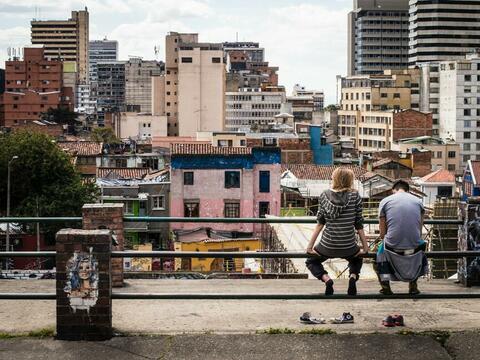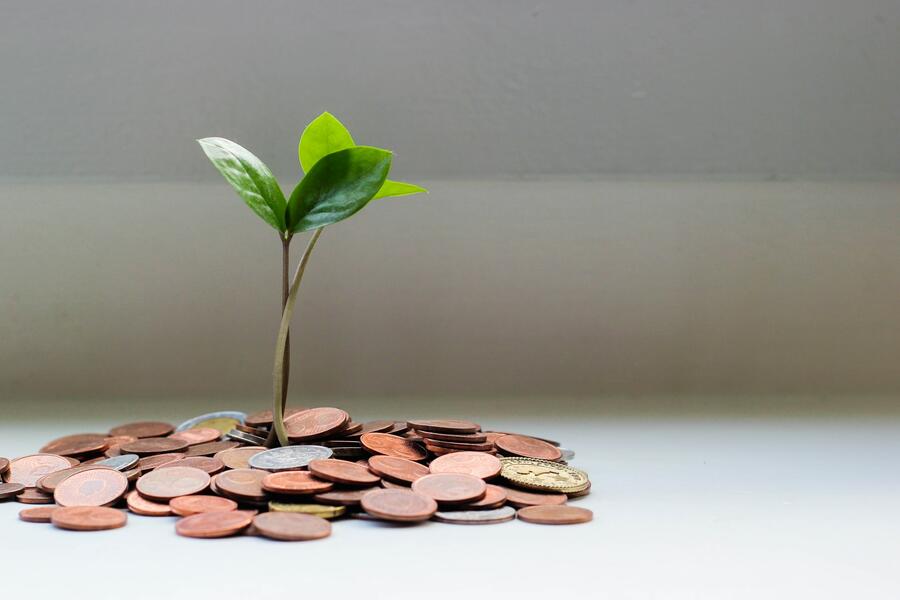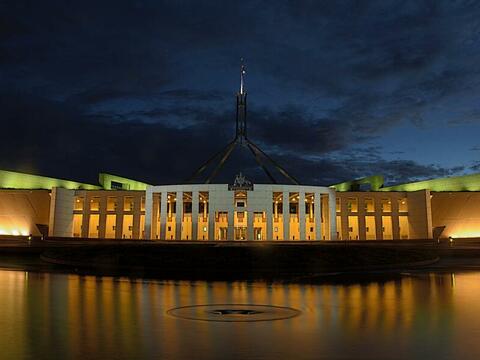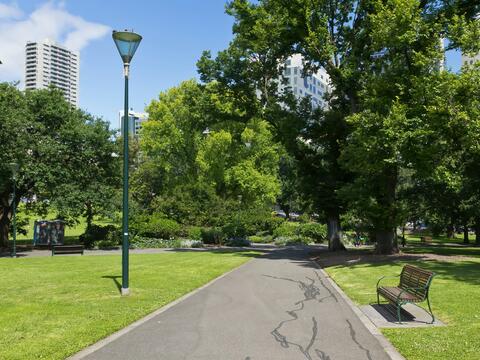EU-AU Knowledge Network
-
International Roundtable on Achieving Positive Social and Economic Outcomes in the Energy Transition
This document is a summary of the discussions held at the International Roundtable on Achieving Positive Social and Economic Outcomes in the Energy Transition on 17 February 2022. This Roundtable was co-hosted by The Next Economy and Melbourne Climate Futures at the University of Melbourne, with support from the Strategic Partnerships for Implementation of the Paris Agreement, and brought...
-
Building Prosperous, Just, and Resilient Zero-Carbon Regions
Increasing recognition of the speed with which fossil fuels need to be phased out combined with sharp falls in renewable energy costs are creating significant challenges for many Australian regional communities with a long history of reliance on fossil fuel industries. At the same time, there is also increasing evidence that a well-managed, just transition to a zero-carbon economy can create huge...
-
Building and Appliance Energy Efficiency Research: Opportunities for EU-Australian Collaboration
European Union (EU) and Australian institutional structures, past policy measures and present policy approaches related to building and appliance energy and climate response have much in common, and important differences. Both the similarities and differences provide fertile ground for increased future research collaboration. Both the EU and Australia have structures with overarching governance,...
-
Launch of the EU-AU Building and Appliance Efficiency Report
Australian-German Climate & Energy CollegeThursday, 17 March 2022 - 5:00pm to 6:00pm
European Union and Australian institutional structures, past policy measures and present policy approaches related to building and appliance energy and climate response have much in common, and important differences. Both the similarities and differences provide fertile ground for increased future research collaboration.
Both the EU and Australia face challenges in dramatically scaling up action to cut carbon emissions associated with appliances and buildings, as well as adapting to more extreme climate conditions and managing equitable transitions. Both have substantial stocks of existing buildings and equipment that will maintain high levels of emissions unless operating efficiency is optimised and/or they are renovated or replaced. Climates and availability of renewable energy vary widely across both regions.
At this event, Alan Pears and Rosalinda Bustamante launched the ‘Building and Appliance Energy Efficiency Report: Opportunities for EU-Australian Collaboration’, which is available here.
Speaker:Alan Pears AM is a Fellow at the Climate and Energy College and a Senior Industry Fellow at RMIT, where he taught for many years. He has worked in the energy field since the late 1970s, mainly on demand side issues and has played key roles in development of several Australian energy efficiency and climate abatement programs across all sectors, including appliance and building efficiency and industry/business energy management. In recent years, he has worked with the Australian Alliance for Energy Productivity, framing and applying the ‘value chain’ approach to energy productivity for the refrigerated cold chain, food processing and application of high temperature heat pumps. He has evaluated urban carbon strategies with the Asia Pacific Economic Community, and has worked with several Australian communities on low carbon strategies. Alan advises business, governments and communities.
Rosalinda is in her final year of the Master of Environment at the University of Melbourne and has a degree in law and business. She has worked in the areas of sustainability, climate change, environmental law, and finance. She has led different community engagement projects in the international youth climate movement since 2014.
-
Energy Affordability: Sharing Lessons from the EU and Australia’s Low Carbon Transitions
Energy affordability is a key concern for households in the European Union (EU) and Australia, as the transformation of the electricity sector unfolds. High prices can lead to energy poverty: when a household cannot afford the essential electricity services needed for a decent standard of living, such as heating. This report compares approaches in the EU and Australia. We analyse the cost drivers...
-

EU-Australia Knowledge Network: Wrap-Up Events
Australian-German Climate & Energy CollegeTuesday, 22 February 2022 - 5:30pm to Thursday, 24 February 2022 - 7:00pmJoin us for a series of wrap-up events for the EU-Australia Knowledge Network.
Wrap-up Day 1: Highlights of the EU-Australia Knowledge Network and a summary of the ‘Buildings and Energy Efficiency’ project
Tuesday 22 February 2022, 5:30pm-7:00pm AEDT
Following an introduction in the SPIPA program, we will present highlights from the Network’s seminars and activities.
Alan Pears and Rosalinda Bustamante will then present a summary of their research on Buildings and Appliances Energy Efficiency in Australia and the EU, including comparisons of the governance and regulatory frameworks between Australia and the EU, linkages with just transitions and circular economies, and areas for potential collaboration between the EU and Australia.
Wrap-up Day 2: The Regional Energy Transition and Launch of the EU-AU Energy Affordability Report
Wednesday 23 February 2022, 5:30pm-7:00pm AEDT
Our first presentation will be from Dr Amanda Cahill (CEO of The Next Economy) discussing the similarities and differences between fossil-fuel reliant communities in Australia and the EU, and lessons learned in facilitating a just transition for these communities.
After Amanda’s presentation, Johanna Cludius, David Ritter and Viktoria Noka from Öko-Institut and Dr Sangeetha Chandra-Shekeran from the University of Melbourne will launch their report ‘Energy Affordability: Sharing Lessons from the EU and Australia’s Low Carbon Transitions’. This will cover both a comparison of electricity prices between Australia and the EU, and different models of hardship protection for vulnerable groups between the two jurisdictions. This report is available here.
Wrap-up Day 3: Health co-benefits from climate action, lessons from the EU Taxonomy, and next steps for the EU-Australia Knowledge Network
Thursday 24 February 2022, 5:30pm-7:00pm AEDT
This event will include two research presentations. First, Belle Workman will present research on the health co-benefits that arise from actions to mitigate climate change; then Angela Bruckner will present lessons that can be learned from the development and implementation of the EU Taxonomy, towards the development of an Australian Taxonomy.
Finally, this event will conclude with a discussion of the links between the EU-Australia Knowledge Network and other members of the Australian SPIPA network, the lessons of the SPIPA program, and next steps to continue the collaborative research relationships developed during this program.

This event has been organised with the financial support of the European Union’s Partnership Instrument. The opinions expressed are the sole responsibility of the speakers and do not necessarily reflect the views of the European Union.
-
Evolution of the Global Research Action Agenda for Cities (GRAA)
Australian-German Climate & Energy CollegeThursday, 17 February 2022 - 10:30am to 11:30am
The 2018 Cities and Climate Change Science conference initiated a process of engagement between urban policymakers, practitioners, researchers and other societal actors, to map and evaluate the state of research and progress on the intersection of cities and climate change, with an emphasis on research needs for increased action. The primary output of this conference was the Global Research and Action Agenda on Cities and Climate Change Science (GRAA)(World Climate Research Programme, 2019), which identified four cross cutting areas and six topical areas where research and knowledge were needed. Expanding the perspective from that seen at the conference to better include the city voice, the Global Covenant of Mayors for Climate and Energy (GCoM) launched the Innovate4Cities (I4C) initiative, and associated City Research Agenda, to support action by cities as called for within the 2018 Cities and Climate Change Science conference’s GRAA.
The first Innovate4Cities conference (Innovate4Cities 2021) was held virtually in October 2021 by GCoM and UN-Habitat, and co-sponsored by the IPCC, once again bringing together a community from academia, the private sector, NGOs, local governments, national governments, city networks, youth, international organisations and other stakeholders engaged in addressing climate change in cities. This virtual conference allowed for presentations from around the world to take place across time zones over five days, which facilitated participation from a diversity of presenters and discussants from over 150 countries. In this presentation, Brenna and Cathy will discuss some of the initial insights on the GRAA, resulting from this recent I4C gathering.
Further reading:
- Global Research and Action Agenda on Cities and Climate Change Science: https://www.wcrp-climate.org/WCRP-publications/2019/GRAA-Cities-and-Climate-Change-Science-Full.pdf
- GCOM: https://www.globalcovenantofmayors.org/
- Innovate4Cities initiative: https://www.globalcovenantofmayors.org/research-innovation/
- 2018 City Research Agenda: https://www.globalcovenantofmayors.org/wp-content/uploads/2018/09/GCoM_Innovate4Cities-OPS_Booklet_8.5x11.pdf
- Announcement for Summary for Urban Policy Makers Initiatives: https://www.globalcovenantofmayors.org/press/new-summary-for-urban-policymakers-initiative-announced/
- Innovate4Cities Conference – Plenaries summary: https://unhabitat.org/relive-the-innovate4cities-climate-change-conference-plenaries-here
- The Future of our Cities is Indigenous – Maddison Miller, Pursuit: https://pursuit.unimelb.edu.au/articles/the-future-of-our-cities-is-indigenous
- I4C Conference Student Writing Team – Report: https://sites.research.unimelb.edu.au/cities/projects/innovate4cities/studentwritingteam

This event has been organised with the financial support of the European Union’s Partnership Instrument. The opinions expressed are the sole responsibility of the speakers and do not necessarily reflect the views of the European Union.
Speaker:Dr Brenna Walsh is a consultant on climate change and cities, and has been co-editor of the Innovate4Cities update to the Global Research and Action Agenda for the Innovate4Cities conference, supported by UN-Habitat. Brenna is supporting the Global Covenant of Mayors in updating the City Research Agenda. Brenna is also a project manager at the Surface Particulate Matter Network, working at the intersection of urban climate change and health. Previously, as a science officer at Future Earth International she coordinated work of the Scientific Steering Committee for the 2018 Cities and Climate Change Science conference, held in Edmonton, Canada after which she coordinated writing of the Global Research and Action Agenda on Cities and Climate Change Science.
https://www.linkedin.com/in/brenna-walsh-716ab028/
Dr Cathy Oke is currently Melbourne Enterprise Principal Fellow in Informed Cities within the Faculty of Architecture Building and Planning and Associate Director (Enterprise and Impact) in the Melbourne Centre for Cities at the University of Melbourne. In this role, she is also Special Advisor Innovate4Cities at Global Covenant of Mayors for Climate and Energy (GCoM). Cathy was previously the Knowledge Broker at the Clean Air and Urban Landscapes (CAUL) research hub, of the National Environmental Science Program, based at the University of Melbourne; and a Councillor at the City of Melbourne 2008 – 2020 (principally in the Environment Portfolio). Cathy has been a member of the ICLEI - Local Governments for Sustainability – World Secretariat’s Global Executive Committee since 2009, a leadership body which guides the network in advancing its global vision. She has been a critical member of the team advocating on behalf of cities at seven UN Conference of the Parties – UNFCCC (Copenhagen, Cancun, Paris, Bonn. Madrid and Glasgow) and Convention for Biological Diversity (CBD) (Cancun and Sharm el Sheik).
https://findanexpert.unimelb.edu.au/profile/720206-cathy-oke
-

Achieving an Equitable and Sustainable Energy Transition: Social Data, Best Practices for Intergenerational Collaboration, and Supporting Youth-led Action
Australian-German Climate & Energy CollegeThursday, 10 February 2022 - 6:00pm to 7:00pmDiverse knowledge and perspectives play key roles in driving research and innovation on climate change action. Despite equitable participation and the value of city-based partnerships as key dimensions of local climate action, youth are an important but often excluded cohort in local climate action. As part of a partnership between Student Energy, Global Covenant of Mayors for Climate and Energy (GCoM), and the Melbourne Centre for Cities at the University of Melbourne, a team of youth researchers representing eight global regions have been assembled as part of the GCoM Youth Policy Innovation Team to advance these imperatives for city and local climate action.
Drawing from the world’s first social dataset of youth perspectives gathered from Student Energy’s Global Youth Energy Outlook (GYEO), members of the policy innovation team have analysed and distilled these datasets into concrete recommendations for an inclusive, climate safe and energy transition. This seminar will provide insight into the key findings and elaborate on the identified pathways and perspectives for action: Youth Vision for the Future Energy System, Governance and Policy Innovation, Technological and Financial Innovation and Social Innovation.
Further resources:
- Global Covenant Of Mayors: https://www.globalcovenantofmayors.org/
- Melbourne Centre for Cities: https://sites.research.unimelb.edu.au/cities
- Global Youth Energy Outlook (including a recording of the Launch event at COP26): https://studentenergy.org/program/outlook/
- International Energy Agency, Recommendations of the Global Commission on People-Centred Clean Energy Transitions: https://www.iea.org/reports/recommendations-of-the-global-commission-on-people-centred-clean-energy-transitions
- The Student Energy 'Energy Topics Index': https://studentenergy.org/energy-education/topics/
- Jamaica Climate Change Youth Council: https://ourfootprintja.org/
- An article by GoodGoodGood on the role of youth councils in tackling climate change: https://www.goodgoodgood.co/articles/youth-council-climate-change

This event has been organised with the financial support of the European Union’s Partnership Instrument. The opinions expressed are the sole responsibility of the speakers and do not necessarily reflect the views of the European Union.
Speaker:Paola studies Industrial Engineering at Universidad San Francisco Xavier (USFX) and is passionate about renewable energy, science, start-ups, and community projects. In 2015, Paola received a scholarship from the Embassy of the United States of America to participate in a Science and Innovation Summer Camp in La Jolla, California where Paola gained life-changing experience about renewable energy and its importance in our future. Since then, Paola has worked on many social projects in Bolivia and founded Magnífica Warmi with a group of friends, which is a project that works with Indigenous women on issues related to the environment and climate change.
In 2020, she was selected as the Latin America Regional Coordinator for the Global Youth Energy Outlook of Student Energy (the first report of its kind to share what young people from all the world want for their energy future in their countries and regions), in 2021 was selected to represent Bolivia in the Youth4Climate: Driving Ambition at Milan for Pre-COP where 400 young people from all over the world will meet to propose the construction of a more sustainable future and now she is part of the Global Support Team of the SDG7 Youth Constituency.
Alison Fong is a budding young planner passionate about connecting peoples, conversations and the built environment through an inclusive and sustainable creative focus. As a recent Master of Urban Planning Graduate from the University of Melbourne, Alison has continuously practiced these values whilst fostering diverse experience across government, private sector, academic and local community the lin planning and placemaking initiatives. Most recently, Alison was chosen to participate as part of the Global Covenant of Mayors’ Youth Policy Innovation Team, where she worked within a collaborative global youth team to extract youth policy insights on city-level climate action from Student Energy’s Global Youth Energy Outlook.
Alison has also been a keen advocate in shaping accessible places for all, where she was awarded 2nd place at the Climathon Melbourne Hackathon in 2017 with her team for an outstanding project to bring greater heat wave knowledge and environmental awareness to international students and was also awarded the annual SGS Economics Planning Graham Larcombe Award in 2020 for her demonstrated interest in equity and social disadvantage issues in urban development during her graduate studies.
-
Forest strategies for climate mitigation in Australia and the EU
Australian-German Climate & Energy CollegeTuesday, 9 November 2021 - 5:00pm to 6:00pm
This seminar will consider the global potential for restoration of degraded lands and forests and specific forest related mitigation strategies in the EU and Australia.
Global potentials for ecosystem restoration
The potential of ecosystem restoration remains underexplored as an option that minimizes land-use change, protects and enhances biodiversity, and delivers sustainably managed and productive landscapes. This presentation considers the types of ecosystem restoration that are presented in the literature, the carbon sequestration potential of these options, and the contribution to limiting temperature rise.
EU Forest Policies
Forests have become central to the European Green Deal as they are key for enhancing biodiversity across the continent, they provide the largest source of carbon sequestration, and they are under increasing pressure due to promotion of wood products to replace energy and products. There are several initiatives under the EU Biodiversity Strategy and the EU Forest Strategy that attempt to provide a direction for action on forests including:
- targets for restoration of forests
- efforts to monitor biodiversity outside of protected areas
- the development of guidelines for afforestation and reforestation projects and
- a roadmap for planting a trillion trees.
This presentation will look at the opportunities and challenges as well as national reactions to these initiatives.
Costs and benefits of restoring Australia’s degraded terrestrial ecosystems
Since European settlement, large areas of Australia’s native vegetation have been progressively cleared for agriculture and urban settlements, with cascading negative effects to biodiversity. Restoring our most heavily degraded ecosystems with native vegetation will prevent species extinctions and help abate climate change. Our latest research sought to find out if we can elevate all of Australia’s ecosystems to have a minimum of 30% native vegetation coverage in healthy condition, while avoiding urban, industrial and primary agricultural areas. We estimate the cost associated with restoration, stewardship, and management of these areas. In addition, we outline the expected carbon abatement. We demonstrate a systematic approach to determine where cost-effective restoration actions need to occur to achieve a conservation goal.
Such a restoration project would restore habitat, ecosystem services, and sequester carbon. This study presents a bold restoration vison, transforming the way landscapes are managed, assisting Australia to become a net zero nation in the next few decades, and creating long-term jobs in regional communities. This research shows that there are restoration-based solutions for biodiversity loss that are attainable and affordable.
The presentations from Dr Kate Dooley and Bonnie Mappin are linked below. Kelsey Perlman's presentation can be found here.

This event has been organised with the financial support of the European Union’s Partnership Instrument. The opinions expressed are the sole responsibility of the speakers and do not necessarily reflect the views of the European Union.
Speaker:Climate and Energy College, University of MelbourneKate has a PhD in climate politics from the University of Melbourne and a Master of Science from Imperial College London. She is currently a Research Fellow at Melbourne University’s Climate and Energy College. Kate has policy expertise on forest governance, climate change and carbon accounting and has almost two decades experience advising government and non-government organisations. She has been following the UN climate negotiations since 2009, focusing on the role of forests and land-use in climate mitigation and has published on rights-based approaches to ecosystem restoration, the politics of forest carbon accounting, and land-use for sustainable development.
Kelsey Perlman is a forest and climate campaigner at Fern and has worked on EU and international climate policy for the past 6 years with experience in various political institutions including ICAO, UNFCCC and the EU. Her current focus is on forest and climate policies in the EU where she follows discussions on negative emissions, sustainable forest management and policies such as the EU Forest Strategy and the Land Use, Land Use Change and Forestry Regulation.
Bonnie Mappin is a biodiversity conservation scientist, with broad background in financial risk mathematics and consulting. Currently she is the Program Director of Landscape Restoration for the Wentworth Group of Concerned Scientists. Bonnie is in the final stages of completing her PhD in ‘Ecological restoration planning for effective conservation of terrestrial biodiversity’ at the University of Queensland. Supervised by Professors Hugh Possingham and James Watson, Bonnie’s research explores gaps in ecological restoration planning to advance impact on the conservation of biodiversity. Her research advances include determining the need and priorities for restoration to achieve conservation goals, evaluating the impact of a large global restoration initiative, and creating a national plan for Australia’s restoration priorities with budgeting costs and benefits.
Bonnie’s background includes formal qualifications in Actuarial Science and experience working in corporate financial services. She transitioned her career to life science by laying foundations with a Masters in Quantitative Biology from Imperial College London. Bonnie’s role at the Wentworth Group of Concerned Scientists involves working with eminent scientists and experts in the policy–science–management interface of conservation, developing technical reports, providing advice for sound environmental policy as well practical resources, knowledge, and tools to empower businesses and communities to restore Australia’s environment.
Pages
Web tools and Projects we developed
Open-NEM
The live tracker of the Australian electricity market.
Paris Equity Check
This website is based on a Nature Climate Change study that compares Nationally Determined Contributions with equitable national emissions trajectories in line with the five categories of equity outlined by the IPCC.
liveMAGICC Climate Model
Run one of the most popular reduced-complexity climate carbon cycle models online. Used by IPCC, UNEP GAP reports and numerous scientific publications.
NDC & INDC Factsheets
Check out our analysis of all the post-2020 targets that countries announced under the Paris Agreement.

























